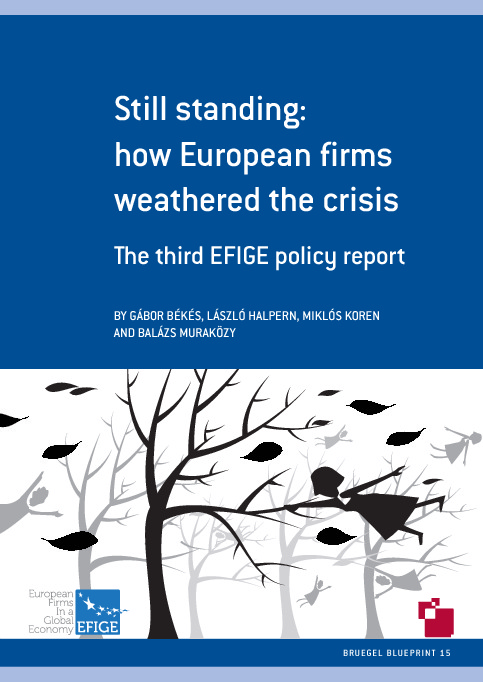Blueprint
Still standing: how European firms weathered the crisis – The third EFIGE policy report
This report is part of the EFIGE project and makes use of the data collected during 2009, a especially turbulent time for European firms. It provides fascinating conclusions showing for example that despite a synchronised, substantial macro-economic shock, the response of firms across Europe was rather diverse, with some of them managing to fare very well in the hardest hit industries and regions. The stylised facts presented in this report are important to bear in mind at a time when Europe is heading for another severe downturn.
This research output confirms the strength of the approach underpinning the EFIGE project, which is based on the recognition that firms are heterogeneous in the extent and the pattern of their internationalisation, as they are in many other respects.
The project provides more, and more precise, evidence of what makes firms successful and therefore also what makes countries successful in the context of globalisation. Internationalisation, however, also makes firms vulnerable to shocks affecting international trade and may transform them into agents of propagation of global downturns.
At the time of the Great Recession of 2009, there was intense speculation about the reasons why trade collapsed much more than output. It was sometimes claimed that global supply chains were not only propagators, but also multipliers of international fluctuations.
This report by László Halpern and his colleagues makes use of the fact that the EFIGE survey was – by accident – conducted in 2009 and – by design – included questions about the firms’ response to the global crisis. It provides a fascinating account of what happened to them in an especially turbulent environment. The stylised facts presented in this report are important to bear in mind at a time when Europe is heading for another severe downturn.









